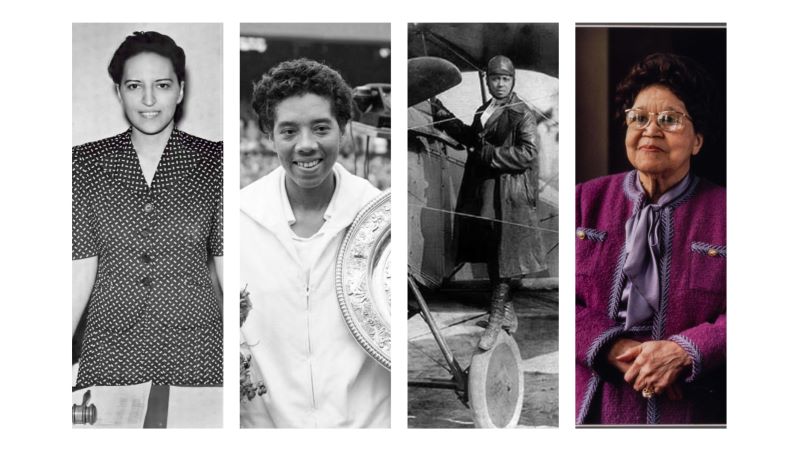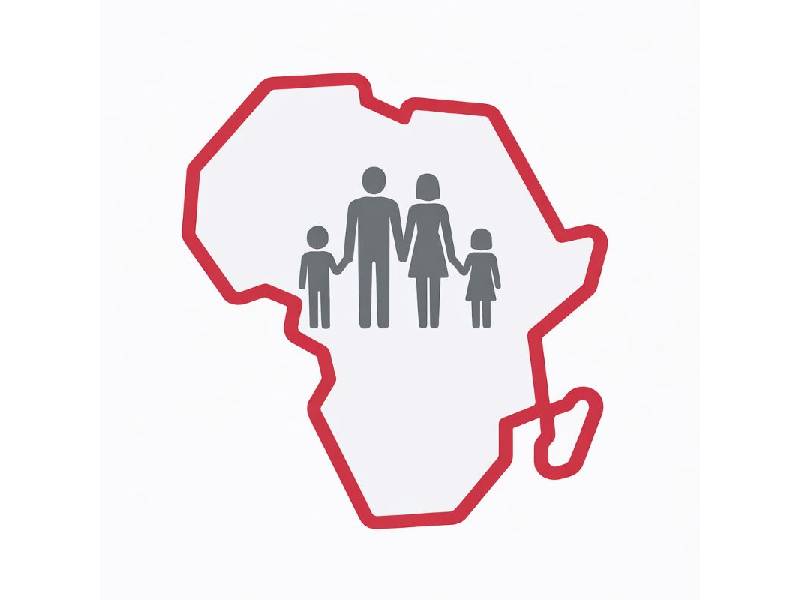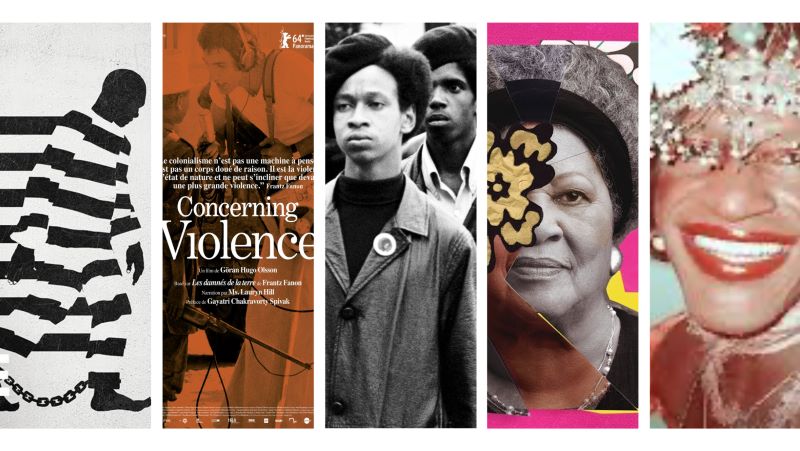Photo credit: JJxFile, CC BY-SA, via Wikimedia Commons
Every July 4th, millions of Americans worldwide celebrate Independence Day. This special day commemorates the signing of the Declaration of Independence in 1776, when Americans broke away from being ruled by the British. Ever since, it has been celebrated as the birth date of the nation as we know it today. If you do the math, that means the United States of America is commemorating 249 years in 2025.
Americans celebrate with fireworks, lots of parades, concerts, and food as they bond over barbecues with family and friends. While it is a moment of pride and celebration, for many Black Americans, this day holds a deeper, more complicated, and often painful meaning.
Independence Day, in terms of true liberation and true freedom, didn’t happen for Black folks in America on July 4th, 1776.
The promises of that day did not extend to all Americans. When the Declaration of Independence was signed and America was celebrating freedom, many Black people were still enslaved and considered property rather than citizens. One of the 56 White men who drafted the Declaration of Independence, Thomas Jefferson, enslaved 175 Black men, women, and children in 1776 and increased that number to 267 by 1822.
The second paragraph of the Declaration of Independence proclaimed that “All men are created equal,” yet Black people were excluded from that vision for centuries. They couldn’t vote, and the men were banned from joining the military.
This stark contrast is perhaps best captured by Frederick Douglass’s powerful 1852 speech, “What to the Slave Is the Fourth of July?”
Speaking at an Independence Day celebration at the historic Corinthian Hall in Rochester, N.Y., the abolitionist who had escaped enslavement in 1838, said:
“The blessings in which you, this day, rejoice, are not enjoyed in common. The rich inheritance of justice, liberty, prosperity, and independence, bequeathed by your fathers, is shared by you, not by me. The sunlight that brought life and healing to you has brought stripes and death to me. This Fourth of July is yours, not mine. You may rejoice, I must mourn.”
What is Independence Day for African-Americans?
Many Black Americans can not seem to forget this historical trauma of slavery, which has somehow shaped how they perceive and experience the 4th of July, even decades after emancipation. Imagine celebrating freedom while grappling with the knowledge that your ancestors were still enslaved on that very day years ago.
Today, Black Americans approach the 4th of July in different ways. For some, it’s a time to take a break from work and bond with family and friends while enjoying good food. For some others, it is a reminder of the ongoing struggles for racial justice in America. This is because, despite the advances made, the Black community continues to experience higher rates of violence, discrimination, and exclusion.

Photo credit: Michael Barera, via Wikimedia Commons
Former Missouri Democratic Congresswoman and Black Lives Matter activist, Cori Bush, believes Independence Day is a holiday meant for White people.
“When they say that the 4th of July is about American freedom, remember this: the freedom they’re referring to is for White people. This land is stolen land, and Black people still aren’t free,” Bush tweeted.
She also promoted the idea of celebrating Juneteenth instead of the July 4th holiday.
Sharing the same sentiment, former MSNBC host Toure tweeted: “F–k Independence Day. Not only were we not free, but the whole reason the Colonies wanted independence was because Britain was moving toward abolishing slavery. Why would Black people celebrate a day so wrapped up in our enslavement?”
Jim Lee, a former military police officer, has a different view about celebrating the 4th of July. Lee was responding to a question on Quora, “Should African Americans celebrate Independence?” He noted that though America has made mistakes, it has also made him the man he is today.
“This is not a perfect nation; in fact, our government is often referred to as an experiment in democracy. This nation has, and probably will continue to, screw up from time to time. But it always (eventually) makes up for it. They enslaved my people centuries ago, just to elect one of us as President not long ago; some of us used to swing by our necks from trees for the most trivial of reasons, but now some of us enforce the law; many of us couldn’t aspire to be more than sharecroppers, now some of us run billion-dollar corporations. So pass the barbecue and firecrackers: I’m going to celebrate.”
There are a few others who see the fireworks, cookouts, music, family time, and bonding as the true essence of the day. This is how Americans have historically celebrated the 4th of July.
“It is just a day to chill for me. Enjoy drinks and BBQ with friends. I don’t dwell on the history much,” Victoria, a resident of Seattle, admitted.

The Growing Recognition of Juneteenth
A growing number of African-American leaders are now advocating that Black people should celebrate Juneteenth instead of July 4th.
Juneteenth, celebrated just a few weeks before the 4th of July, is the holiday commemorating the true liberation of enslaved African Americans. Its historical significance can be traced back to June 19, 1865, when Union General Gordon Granger arrived in Galveston, Texas, and announced the end of slavery, over two years after the Emancipation Proclamation was issued.
Since Juneteenth was officially recognized as a federal holiday in 2021, countless Black Americans see it as the true celebration of Black liberation, and that is the Independence Day they celebrate.
Some others believe both holidays can co-exist as they commemorate freedom, even though they represent distinct milestones in the journey of African Americans. Juneteenth recognizes the enduring resilience of Black people, and the 4th of July, on the other hand, serves as a reminder of the nation’s ideals that are still worth striving for and fighting for.
“Some regions within the USA, such as Texas, recognize June 19th in a similar way to July 4th. A special day for Blacks in America because it was the day regions finally heard that slavery had been abolished. Many consider it Black Independence Day. Blacks mainly celebrate that day, especially now that it’s been nationally recognized, but they still celebrate July 4th like any other American,” Nanie Memeh, a former Miss Face of Africa USA, stated.
Precious Nwedo Nzeribe MD, an African immigrant living in the United States on a work visa, is grateful for the opportunities the US has brought his way, especially the chance to receive a world-class education and to secure a job that not only allows him to grow professionally but also to support his family back home.
“In the past, the Fourth of July was a day when we were all grateful for this great country. However, today my feelings about this holiday are more complex. For many Black and Brown people, including immigrants like myself, this day is as much about reflecting on unfulfilled promises as it is about celebration. The ideals of liberty and justice have not always been extended equally, and that exclusion is still felt today.
“Despite the challenges, the Fourth of July is a time for me to acknowledge both progress and ongoing struggles. I honor the resilience of those who came before me and celebrate the opportunities I have been given. I remain hopeful for better times ahead and for more celebrations where all of us can truly feel included and free. Until then, I am committed to doing my part to help build a more just and inclusive America.”
So, what does the 4th of July mean to Black Americans? It’s not a simple answer. It’s a mixture of both sad and happy feelings. While some are happy to celebrate the nation’s achievements so far, others cannot seem to forget the past and the failure to extend its promise of liberty to all its citizens equally.
This 4th of July, many Black Americans will gather to watch the fireworks burst across the night sky, fire up the grill, and enjoy delicious food while creating new cherished memories. Yet, beneath the surface of celebration, there will also be a moment of reflection on the pain of the past while looking forward to the possibilities of the future.





